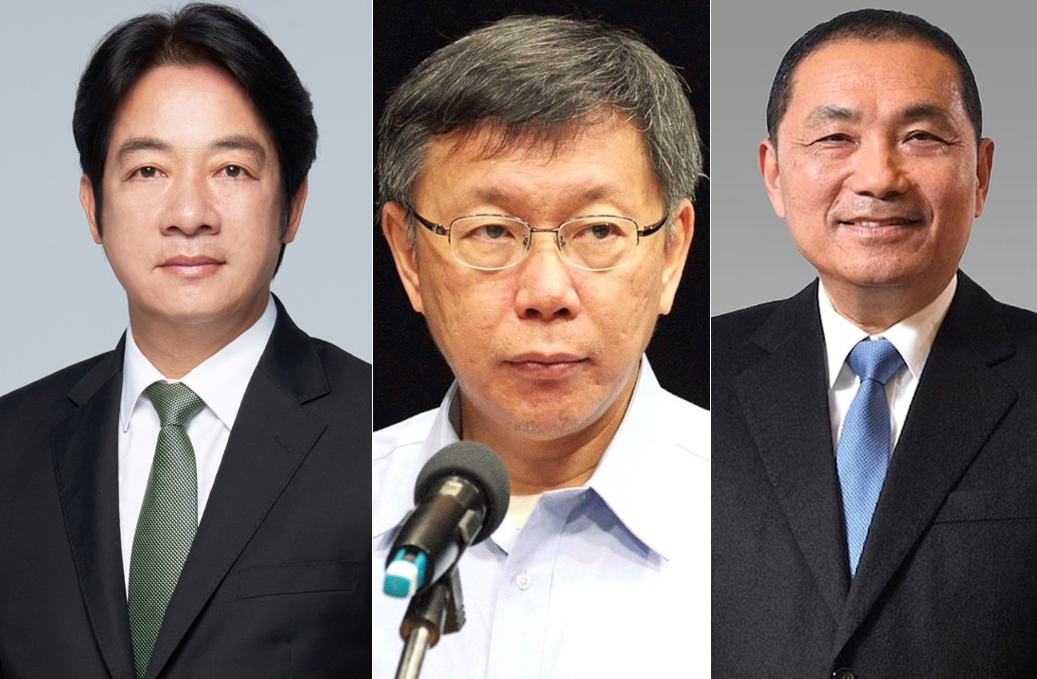Voters go to the polls in Taiwan’s most anticipated election
Some 19.5 million voters are called to choose Tsai Ing-wen’s successor in a three-way race that will also test relations between the island, Washington, and Beijing. The first results will be available already tomorrow evening. The race is much more uncertain than four years ago, when the Democratic Progressive Party achieved a clear victory. Voters will also cast their ballots for Taiwan’s parliament, the Legislative Yuan.
Taipei (AsiaNews/Agencies) – In its latest ad, the Democratic Progressive Party (DPP) could not have a clearer message. In it, its presidential candidate, William Lai, sits in a car next to outgoing President Tsai Ing-wen, who is at the wheel. When she gets out, after handing over the key, she tells him: "You can drive better than me". And he reassuringly replies: "She's here. We have no problem."
Taiwan goes to polls tomorrow, 13 January. After two terms, Tsai Ing-wen is no longer eligible to run, leaving the field to William Lai, her vice-president, who has taken even more pro-independence positions in the party.
For the eighth time since the end of martial law in 1987 and the first direct election in 1996, Taiwanese are voting to choose who will become their sixth president. Unlike four years ago, when Tsai Ing-wen won with 57 per cent of the vote, this time the result is much more unpredictable.
It is a three-way race, with Lai’s main challenger from the Kuomintang[*] (KMT), Hou Yu-ih, joined by the former mayor of Taipei Ko Wen-je, who is running for the Taiwan People’s Party (TPP), who presents himself as the only “acceptable” candidate for both China and the United States.
The vote is especially crucial, coming after four years marked by China’s repeated promises of "reunification", with the United States reiterating its support, military included, for Tsai's stance on Taiwan’s de facto autonomy.
William Lai has consistently led in public opinion polls, but as of 3 January, they can no longer be published under the country’s election law.
The failure of Beijing’s preferred candidates to strike a deal has played to Lai’s advantage. But in recent weeks, the gap with Hou has been shrinking and the result remains uncertain, while Ko appears to be losing ground, seemingly weakened after the deal with the KMT fell through.
For his part, Hou’s entire election campaign has been centred on painting the outgoing vice-president as someone who risks leading Taiwan to war with the People's Republic of China (PRC), as opposed to the KMT, which, he promises, will bring the benefits of more relaxed relations with Beijing while not renouncing the island’s specificity.
Throughout the election campaign, China has sent signals in this sense, both with offers of credit and economic cooperation plans between Taiwan and Fujian, presented just three days ago, as well as unorthodox methods such as defamatory videos about outgoing President Tsai Ing-wen, largely spread on social media by pro-PRC accounts.
Promises aside, what has happened in the last four years in Hong Kong has played in Lai's favour. The harsh repression of the pro-democracy movement has left the "one country, two systems" formula in shatters, something that has not gone unnoticed in Taiwan.
A sign of the times is the report that, in this election, the University of Hong Kong did not organise any trip for its students to follow the vote in Taiwan, unlike in 2016 and 2020, when students were offered a chance to visit the offices of Taiwanese political parties and discuss the vote.
Some 19.5 million Taiwanese are eligible[†] to vote (out of a total population of 23 million). In the last presidential and parliamentary elections in 2020, voter turnout was around 75 per cent.
Polling stations will remain open from 8 am to 4 pm local time with the first results expected in the evening.
Along with the president, voters are called to elect 113 members of the Legislative Yuan, Taiwan's parliament: 73 members by first-past-the-post in single-member constituencies, 34 by party-list proportional representation voting, and 6 by persons with indigenous status.
In the outgoing legislature, the DPP held a solid majority with 63 seats, against 38 for the KMT and 5 for the TPP.
The outcome of the vote for the Legislative Yuan is another unknown factor in this election. Even if William Lai wins in the presidential race, there is no certainty that the DPP will keep its majority in parliament, in which case, votes for Ko Wen-je's party could become pivotal.
[*] Chiang Kai-shek's historic party is closest to Beijing at present.
[†] Taiwanese nationals who are 20 or older on the day of the election are eligible to vote.
21/06/2021 09:43
12/08/2020 12:08
11/08/2020 09:29







.png)










